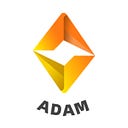ADAM Brings the World Cup to the Blockchain, Using the Data Encryption Computing Network
Recently, the quadrennial World Cup has opened, and the world’s topics are focused on the World Cup in Qatar. Qatar is undoubtedly one of the wealthiest places on earth. Living up to expectation, the very extravagant hosting has opened the eyes of the many people, with its expenses of upwards of $220 billion, 14 times more than the World Cup in Brazil, 19 times more than Russia, and more than the total of previous 21 World Cups.
With the opening of the World Cup, more and more stories are happening, such as Qatar lost its opening match. There are too many things worth recording in this grand event, and netizens around the world are spontaneously creating content, whether it is in the form of jokes, audio, video or articles. Blockchain, as a system for permanently storing proofs, will never be absent from this grand event. So, what can we do to put the World Cup on the chain?
The operation of “World Cup”information requires the use of oracles. And smart contracts is required to make better use of this data information. Access the traditional off-chain API data through the oracles, realize the automation process with smart contracts and retain the tamper-proof characteristics of the blockchain. Specifically, through ADAM, the data encryption computing network and smart contracts, the blockchain can be used to bring many new opportunities to athletes, teams, leagues and fans around the world.
Uploading “World Cup” data with ADAM
To take full advantage of blockchain and smart contracts in the World Cup, which is one of the major events in the world sports industry, it is necessary to access off-chain data and verify the results of off-chain events. However, the blockchain is a closed network, which means that the blockchain itself cannot generate match data, nor can it directly call off-chain APIs. This off-chain connectivity problem is often referred to as the oracle problem.
Connecting a blockchain environment to an off-chain API requires access to a blockchain middleware, the Decentralized Oracle Network (DON), which can obtain data for smart contracts, verify its accuracy, and send it to smart contracts on the blockchain. DON can also perform various computing tasks that cannot be completed on the chain for smart contracts, such as achieving scalability, ensuring privacy, and connecting smart contracts to off-chain settlement networks. DON can also perform various computing tasks that cannot be completed on the chain for smart contracts, such as achieving scalability, ensuring privacy, and connecting smart contracts to off-chain settlement networks.
ADAMoracle, as the first decentralized oracle network that supports wide-area node price feeding, can access off-chain data and computing resources for smart contracts. ADAMoracle provides users with a complete set of decentralized services, and has already ensured the security of smart contract applications in many industries. ADAMoracle is also compatible with all blockchains and APIs, and can connect any API to any chain or layer-2 solution. By using ADAMoracle to bring the World Cup on chain, athletes, teams, leagues and fans all over the world can experience real-time, efficient, safe and accurate data services on the chain.
The value of blockchain technology and smart contracts for the sports industry
Blockchain can track the ownership of various types of digital assets in a tamper-proof ledger. These digital assets include fungible tokens as well as non-fungible tokens (NFT), which represent the ownership of different types of assets, such as cryptocurrencies, physical memorabilia, digital rewards for fans or even rights to athletes’ professional income Token.
Developers can use smart contracts to assign attributes to tokens and create specific code logic. Smart contracts can greatly expand the size of existing sports marketplaces and bring new channels for the sports industry to realize value, such as the ability to easily publish their own marketplaces. Some application scenarios, for example, are as follows:
Prediction Markets — Smart contracts can create a variety of bilateral prediction markets in which users can place bets on the outcome of matches regardless of odds. Prediction markets access match data from global or local sports leagues and settle based on data such as scores, player statistics, team data and coin flip results.
Sports Collectibles — Blockchain ledgers can track limited edition digital or physical memorabilia, verify its true origin, record ownership and track any data updates.
Fan Rewards — Athletes and teams can issue NFT rewards to fans when they reach a certain milestone. NFT holders can get exclusive limited-edition souvenirs, visit the backstage, or even communicate one-on-one with the stars.
Invest in team or player career development — players or entire teams can pay out their career bonuses or interests in team revenues in the form of passes to raise working capital, and pass holders can receive future earnings.
Match Ticketing — Tickets for hard-to-find matches can be allocated fairly using verifiable random numbers, not even the event organizers.
Of course, the blockchain applications for the sports industry represented by the World Cup go far beyond that. What we hope to see is that through blockchain technology and smart contracts, athletes, leagues and teams can better realize the value of their time and offer more souvenirs and reward programs to their fans, while fans can create and participate in global and local sports markets, conduct transactions efficiently, and verify the fairness of transactions. With the blockchain system, sports fans around the world can better participate in the sports industry.
